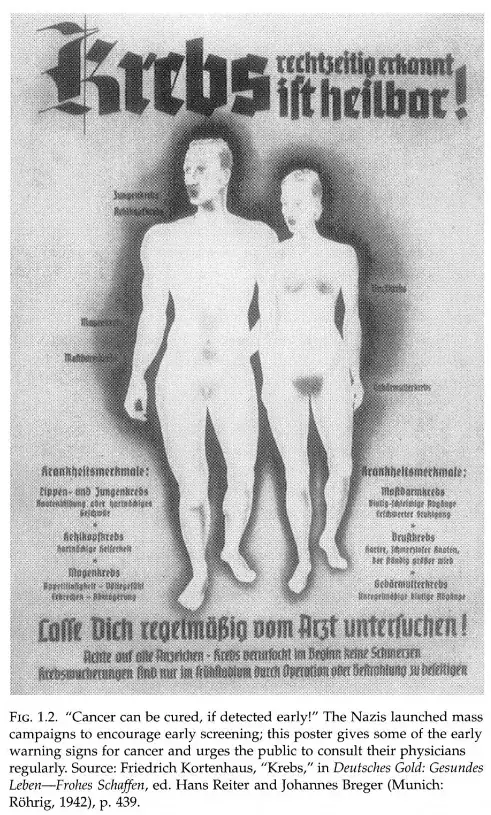Yes. See Proctor's The Nazi War on Cancer (1999). A few quotes:
German epidemiologists ... managed to prove, securely and for the first time anywhere, that smoking was the major cause of lung cancer. ...
More than a thousand medical doctoral theses explored cancer in one form or another in the twelve years of Nazi rule ... Cancer registries were established, including the first German registries to record cancer morbidity (incidence) and not just mortality (deaths). Efforts were made to strengthen prevention- oriented public health measures, including occupational safeguards, laws against the adulteration of food and drugs, bans on smoking, and programs to reduce the use of cancer-causing cosmetics, to name only a few. ...
One of the more arresting features of the Nazi anticancer effort was its emphasis on prevention.

it was in Germany in the late 1930s that we first find a broad medical recognition of both the addictive nature of tobacco and the lung cancer hazard of smoking. ...
The Nazi war on tobacco shows that what most people would concede to be "good" science can be pursued in the name of antidemocratic ideals.
Also, separately, there is Pernkopf's Anatomy. Here's a recent New York Times story on its use (though not specifically for cancer): In Israel, Modern Medicine Grapples With Ghosts of the Third Reich.
